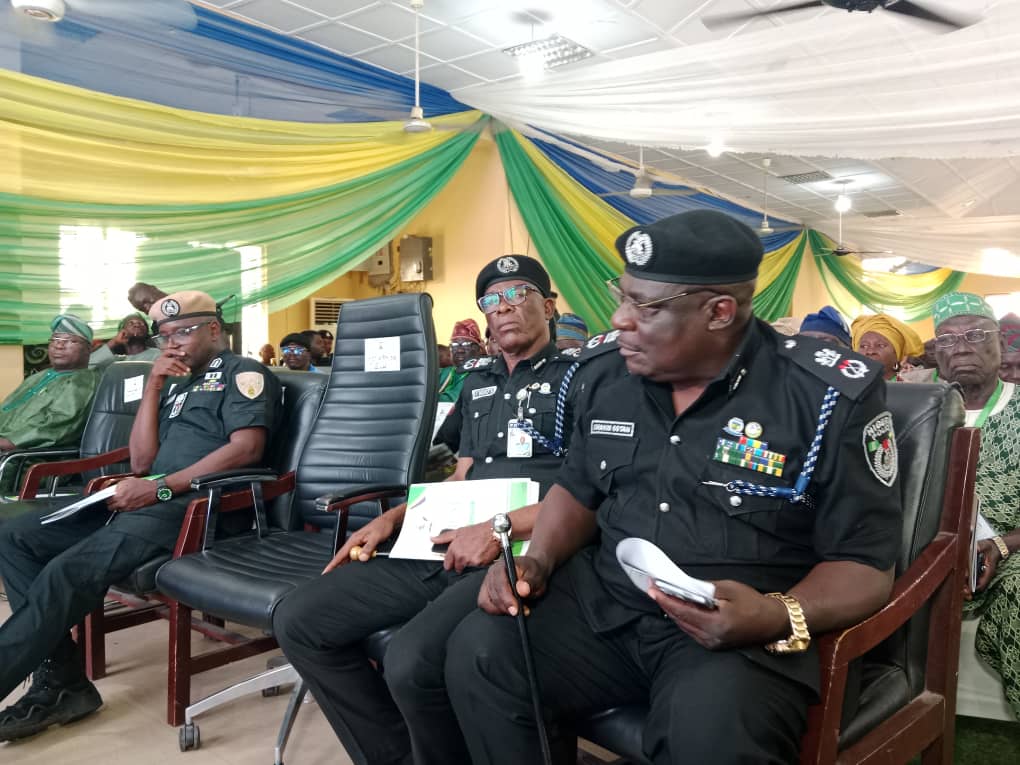Stakeholders, Police rise to stem crisis
Major stakeholders and the police are uniting to find ways of ending the siege on the education sector by criminals, who killed at least 16,000 teachers across the country between 2012 and 2016 alone.
This translates to an average of 1,000 teachers killed annually by the criminals.
Besides, over 19,000 teachers were displaced, while several thousands of children were forced out of school due to rising insecurity within the period.
These gruesome statistics came to the fore on Monday as security experts, education professionals, and government stakeholders gathered in Osogbo, Osun State capital, for a two-day Stakeholders’ Forum on the Security and Safety of Schools to stem the worrisome development.
It was learnt that these numbers are more than statistics. They represent futures cut short, dreams abandoned, and a nation’s education system under siege.
In one haunting example from northern Nigeria, a classroom fell silent—not because a school bell rang, but because gunmen had attacked the school the night before.
Students disappeared; teachers fled. The blackboard gathered dust for months. That school, like many others, transformed from a place of learning into a symbol of fear.
The Osogbo event, spearheaded by the Nigeria Police Force in collaboration with local authorities, focused on actionable strategies to secure educational institutions and prevent further tragedies.
In his keynote address, Commissioner of Police Abayomi Shogunle, National Coordinator of the Schools Protection Squad (SPS) at the Force Headquarters, Abuja, emphasized the federal government’s ongoing commitment to safe education.
He said, “Our efforts go beyond rhetoric.
“In 2019, Nigeria joined 118 nations in signing the Safe Schools Declaration. By 2021, we hosted the 4th International Conference on Safe Schools in Abuja. And in 2023, we began implementing the Mid-Term National Plan on Financing Safe Schools.”
He declared that the Nigeria Police Force now runs a 24/7 School Emergency Response Centre, coordinating rapid interventions during threats or attacks.
“From emergency response centres to engaging host communities, we are building a system that doesn’t just react—but prevents.
“We are collaborating with state and local governments, security agencies, and community leaders to ensure no child misses school due to fear,” he said.
He outlined the plan’s key objectives:
– Protecting learners, teachers, and non-teaching staff;
– Building resilient communities; and
Creating safe, secure environments where education can thrive.
Shogunle also revealed that Osun State is among the first to pilot the national school protection plan, expressing hope that other states would follow.
“Education is the bedrock of national development. Investing in it is investing in our future.
“This aligns with the Renewed Hope Agenda of the current administration and the Nigeria Police Force’s mandate to protect lives and property,” he said.
Also speaking at the forum, Commissioner of Police for Osun State, Mr. Ibrahim Gotan, commended the organizers for creating a timely and much-needed platform.
“For the next two days, we will engage in meaningful dialogue, share expertise, and explore effective strategies to strengthen the safety of our schools,” Gotan said.
Although Osun remains one of Nigeria’s most peaceful states, he acknowledged isolated incidents of insecurity that still require attention.
“This forum brings together critical actors from across sectors—education, security, government, religious, and traditional institutions. Your presence underscores a shared commitment to safeguarding our students, teachers, and school staff,” he added.
Gotan expressed gratitude to Governor Senator Ademola Jackson Adeleke, traditional rulers, the Inspector-General of Police, IGP Kayode Adeolu Egbetokun, PhD, NPM, and other key stakeholders for their support and collaboration.
“Let us work hand-in-hand to make this forum impactful and lay a solid foundation for safer schools—not just in Osun, but across Nigeria,” he concluded.
In her goodwill message, the National Coordinator on Financing Safe School Programme, Halima Iliya urged the state government to finance the initiative.
Iliya called on the state and local governments in Osun to procure vehicles and bikes for operations and to also support vigilante, hunters and Man O War, adding that there did a need for state to accommodate the school protection initiative in its budget





